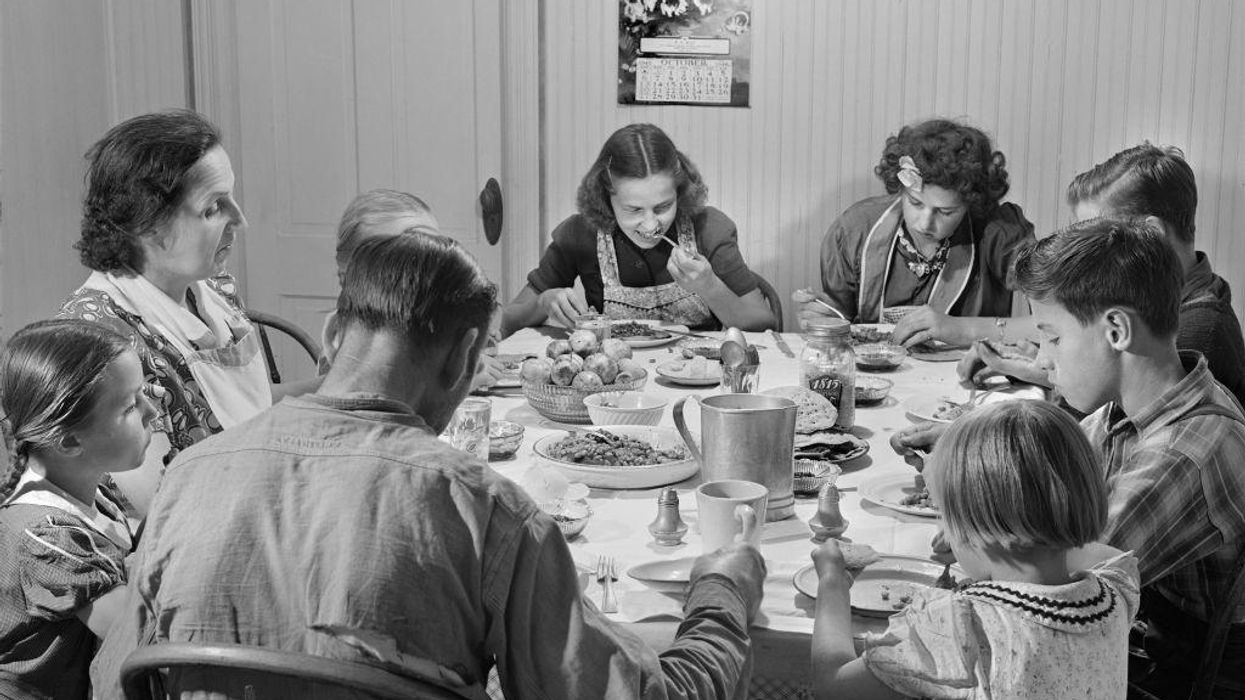
Photo by: Universal History Archive/Universal Images Group via Getty Images

It turns out that even the notion of having skin in the game, in this case taken to mean having, raising, and sending children off into the world, prompts people to become more socially conservative. That was the conclusion reached in a scientific investigation published on September 7 in the biological journal "Proceedings of the Royal Society B," published by the Royal Society of the United Kingdom.
Dr. Nicholas Kerry, a researcher at the University of Pennsylvania, and a team of over twenty other academics conducted four studies and surveys involving 2,610 adults.
Conservatism was defined for the purposes of this research as "a tendency to prefer safer, more traditional behaviours, social organizations and sources of moral guidance, alongside cultural ingroup preference and resistance to cultural change."
In the first of the studies undertaken, one group of participants was shown 12 pictures of cute young children. Each participant was then asked about what they imagined their own future child might look like. They were told to assign the imagined child a name and then describe a series of experiences they might have together.
The second group of participants in the first study were provided pictures not of children, but of household items and leisure objects. They too were asked follow-up questions, but this time about what activities they might enjoy pursuing with these inanimate items in their employ.
Both groups were then provided a survey assessing social conservatism. In this study, and in the second study wherein the researchers sought to replicate their findings, "there was a significant interaction ... such that more emotionally engaged participants (+1 s.d.) scored higher on social conservatism" in the first group as compared with the control group.
When confronted with stimuli arousing a parental or child care sensibility, participants who emotionally engaged with the test manipulations (i.e., the photos of children and thought experiments concerning raising a child) reacted more strongly to the concepts of "abortion choice," "traditional marriage," and "family unit."
The researchers' third study cast a wider net in search of correlations between social conservatism and parental care motivation and found there was indeed a "significant positive association."
Kerry and his team noted, however, "this relationship was largely specific to social — and not economic — conservatism. The association with economic conservatism was relatively weak overall." However, American parents involved in the study exhibited a "highly significant positive association" between their parental status and economic conservatism.
The link between conservatism and parental care was not skewed by sex or age, and "only slightly attenuated (b=0.25) when simultaneously controlling for the effects of socio-economic status." Parents, nonparents, and men and women of all ages who emotionally engaged with the prompts evidenced greater social conservatism when assessed.
Among the ten countries involved by way of participants in the broader investigation, the linkage between conservatism and "parental care motivation" was strongest in the United States, Poland, Lebanon, and South Korea. The link, while still not insignificant, was weaker in Denmark, Chile, Australia, and Japan.
Sexual conservatism, taken by researchers to mean an aversion to homosexuality, divorce, abortion, premarital sex, casual sex, and prostitution, was also stronger amongst those with the parental sensibility.
Kerry and his team concluded that parental care, "the fundamental driver of human behaviour" — that sees people through their investment of time, energy, instruction, affection, and all else required in the generation and rearing of children — "shapes social attitudes and cognition." It would make sense for those who desire to be or are already involved in child care "to pursue a stable, family-focused environment" and respond well to political parties that support this goal. Additionally, those "motivated to care for children" may be less likely to show preference for policies that undermine the family and marriage or promote destabilizing forces such as adultery and promiscuity.
Kerry provided the Guardian with a strong takeaway for a politically polarized world: “Understanding that point is important in realising that maybe people you disagree with a bit aren’t just stupid and evil … Those people might have been shaped by just their situation in life and what their motivations and goals are.”